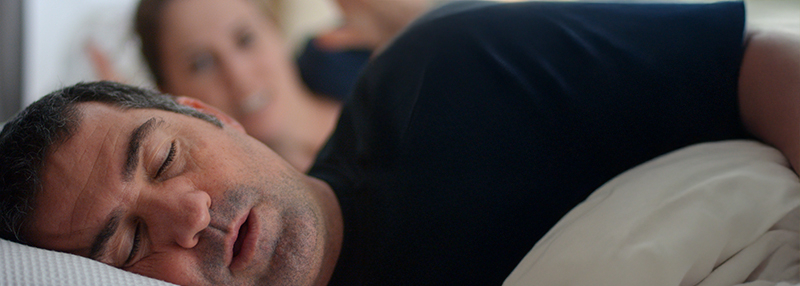New Year's Resolution: Treating Your Sleep Apnea
Posted On: January 10, 2025 by CarePro Health Services in: CPAP Sleep Apnea Sleep Therapy

As we welcome a brand-new year, many of us make resolutions to improve our health and wellbeing. If you suspect that you or a loved one has sleep apnea, now is the perfect time to take action. Let’s explore the importance of treating sleep apnea, provide encouragement to stay compliant with CPAP therapy, and offer valuable tips to help you succeed.
What is Sleep Apnea?
Sleep apnea is a serious sleep disorder that affects millions of people worldwide. It occurs when a person's breathing is interrupted during sleep, causing them to stop breathing for short periods. These interruptions can happen multiple times per hour, leading to fragmented sleep and reduced oxygen levels in the blood. The main types of sleep apnea are:
- Obstructive Sleep Apnea (OSA): The most common form, caused by a blockage of the airway when the soft tissue in the back of the throat collapses during sleep.
- Central Sleep Apnea (CSA): Occurs when the brain fails to send proper signals to the muscles that control breathing.
- Complex Sleep Apnea Syndrome: Also known as treatment-emergent central sleep apnea, it occurs when someone has both OSA and CSA.
Why Treating Sleep Apnea Matters
Sleep apnea can lead to a range of health problems, including:
- Fatigue and daytime sleepiness: Poor sleep quality can result in excessive daytime sleepiness, affecting your ability to concentrate and perform daily tasks.
- High blood pressure: The sudden drops in blood oxygen levels that occur during sleep apnea episodes can increase blood pressure and strain the cardiovascular system.
- Cardiovascular disease: Sleep apnea is associated with an increased risk of heart attacks, strokes, and irregular heartbeats.
- Diabetes: Sleep apnea can affect the body's ability to use insulin effectively, leading to type 2 diabetes.
- Depression and anxiety: The chronic fatigue and sleep disturbances caused by sleep apnea can contribute to mental health issues.
If left untreated, sleep apnea can significantly impact your quality of life and increase your risk of developing these serious health conditions.
Taking the First Step: Consulting a Doctor
If you suspect that you or a loved one has sleep apnea, the first step is to consult a doctor. Your doctor will perform a physical examination, take a medical history, and may recommend a sleep study to diagnose sleep apnea. A sleep study, or polysomnography, involves overnight monitoring of your breathing and other body functions during sleep. Home sleep tests may also be an option for some patients.
What Happens After Sleep Apnea is Diagnosed?
Once diagnosed, your doctor will discuss treatment options with you. The most common treatment for obstructive sleep apnea is CPAP (Continuous Positive Airway Pressure) therapy. Other treatments may include lifestyle changes, such as weight loss, positional therapy, or surgery in severe cases.
Starting CPAP Therapy
CPAP therapy involves wearing a mask over your nose and/or mouth while you sleep. The mask is connected to a machine that delivers a continuous stream of air, keeping your airway open and preventing apnea episodes. Starting CPAP therapy can be challenging, but it is crucial for managing sleep apnea effectively.
How to Stay Compliant with CPAP Therapy
Staying compliant with CPAP therapy is essential for its effectiveness. Here are some tips to help you stay on track:
- Make it a habit: Use your CPAP machine every night, if you’re struggling due to discomfort, reach out to your home medical equipment provider or physician for assistance. There are ways to resolve common discomforts with CPAP therapy, such as changing masks or adding a humidifier.
- Get comfortable: Experiment with different masks and machine settings to find what works best for you. Your local home medical equipment provider, like CarePro Home Medical and Kelly's Home Medical, can help with this.
- Track your progress: Use a sleep tracker or mobile app to monitor your sleep quality and stay motivated.
- Get support: Share your experience with friends and family and consider joining a sleep apnea support group.
How CarePro Home Medical and Kelly’s Home Medical Can Help
At CarePro Home Medical and Kelly’s Home Medical, we're committed to helping you manage your sleep apnea and improve your overall health. We carry:
- CPAP Machines: Browse our selection of CPAP machines from top brands.
- CPAP Masks: Find the perfect CPAP mask for your needs from our range of full-face masks, nasal masks, and nasal pillow masks.
- Accessories: We offer a variety of CPAP accessories to enhance your CPAP therapy experience, including cleaning supplies, replacement parts, and comfort items.
Our team of experts can help you find the right CPAP equipment and supplies. We can also resupply you with CPAP and BiPAP supplies based on your insurance guidelines to ensure you always have what you need.
Sleep Better in 2025
By consulting a doctor, staying compliant with CPAP therapy, and using the right resources and products, you can take control of your sleep apnea and start living the life you deserve. Make this year the year you prioritize your sleep health!
Resources

0 comments